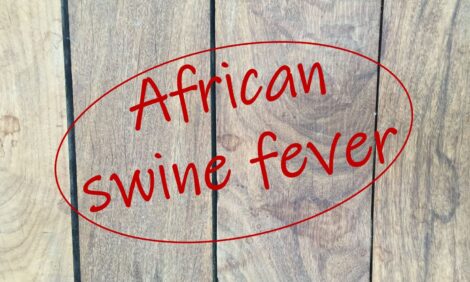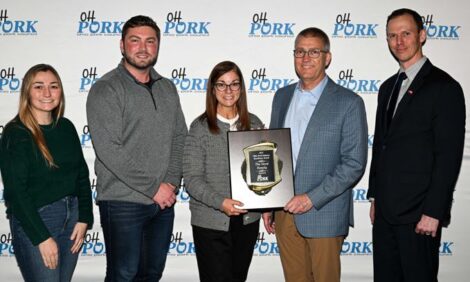



“We’re all in this together”: Tyson Foods leads industry in future ASF preparedness
Tyson Foods shares how they are partnering with industry to chart a path forward in the event of a future African swine fever outbreak
During USDA’s 97th Ag Outlook Forum, Barbara Masters, VP Regulatory Policy for Food & Agriculture with Tyson Foods, shared how their organization has been partnering with the rest of the industry to chart a path forward in the event of a future outbreak. Specifically, she discussed the impact on trade, and the steps Tyson is taking to mitigate the impact on supply.
A coordinated response to ASF
Back in 2019, CEOs of major U.S. packing companies met with the Undersecretary for Marketing and Regulatory Programs to discuss current gaps in the industry and determine a path forward.
The result was a task force charged with developing a trade plan in the event of another outbreak of ASF. They continue to meet with APHIS, food and safety inspection service, Customs & Border Patrol, and state animal health officials.
According to Masters, Tyson Foods is working to support APHIS and their efforts to regionalize in the event of an outbreak. They’re also working closely with the National Pork Producers Council and the National Pork Board to ensure that producers have a secure pork supply in place.
“It’s clear to say that the rest of the industry has also fallen into place, similar to Tyson,” Masters said.
Part of the preparedness planning is holding tabletop exercises to review the lessons learned in 2020.
“We've reviewed areas such as biosecurity, wastewater management, communication, and human resources,” said Masters. “And I would say that having these exercises really helps us to know what's going on.”
One of the most important 2020 learnings was the importance of an intersection between federal, state, and local regulatory functions. As a packer, Tyson has FSIS on site every day, but they hadn’t established strong relationships at the state and local level. That became a focus area in 2020.
Tyson’s preparedness exercises lead to deeper questions and learnings
Although Tyson had incident management programs, they weren’t using them every day. So, they started holding regular preparedness exercises. These exercises start with the IIC going up and tagging a pen, leading to a series of questions:
- Where did the animals come from?
- What other animals have you received in the past two weeks from the same producer?
- What trucks have hauled animals from that same producer over the past two weeks?
- Where have those trucks gone, in addition to that same producer?
The more Tyson conducted these exercises, the more granular the questions and learnings became.
One of their key findings came in their cleaning and disinfectant chemicals. While they were validated for microbial contaminants and bacteria, they weren’t validated for African swine fever. While there was never a food safety concern, Tyson worked to improve their operations so there was absolute certainty of no cross-contamination.
Other areas for improvement included:
- Disinfection of lairage areas
- Mitigating truck transportation, and employee, FSIS, and visitor vehicles as an avenue for disease spread
- Wastewater disposal, particularly during national shutdowns
While Tyson had included a range of teams in their initial exercises, including operations, food safety, transportation, communications, etc., they initially didn’t include human resources. That quickly changed.
“We recognized that the movement of people, our employees, was going to be critical, that we needed to make sure HR was involved in our planning,” said Masters. “We needed to think about whether or not employees owned pigs, whether they lived in the control zone, or whether they cross through a control zone, going back and forth to work. We needed to think about whether employees needed to change out of their clothing, their boots, their vehicles.”
Tyson’s involvement in informing government policy
Tyson maintains a close relationship with APHIS, who held their own packer and allied industry policy workshop this past January. The exercise was designed to look for policy gaps and focus exclusively on packers and the allied industries -- involving trade, federal government, and state animal health officials.
“As I keep saying,” said Masters. “We’re all in this together.”
Similar to the Tyson local exercises, APHIS looked at diagnostics, epi and tracing, communication, quarantine and movement, continuity of business, disposal, cleaning and disinfection, and incident management.
“The best preparation for tomorrow is to make sure today’s work is superbly done,” said Masters. “We need to find our gaps and fill them.”







